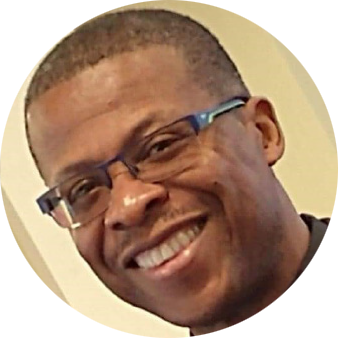
By Augustus Henry (PhD)
Our journey takes place in Jerusalem during the start of Jesus’ ministry. The temperature of the environment is hot with agitation from the preaching of John the Baptist who testified that the long awaited Messiah had arrived. Before we pick up from our focus verses in Matthew chapter seven, let’s take a moment to review some highlights from the chapters before it:
In Matthew four, Jesus was tempted in the wilderness and preached His first sermon with an emphasis on repentance and the arrival of the Divine Kingdom.
In Matthew five, the greatest lecture ever given was presented, the beatitudes, where the letter of the law was contrasted against the spirit of the law. The puny legs that supported the pedestal of the religious teachers crumbled under the weight of the realization that they too stood on level ground with the people they looked down upon when confronted with the gospel of salvation.
In Matthew six, Jesus continues to pull back the curtain of deception and misunderstanding as He presents the principles of the Divine Kingdom in ways that granted His hearers access into a portal of thinking that many had never fathomed possible. He introduced the model prayer and encouraged them to store their treasure up in heaven. He openly rebuked hypocrisy and gave worry a reason to panic when He taught that God the Father is committed to caring for humanity’s needs and there was no need to be anxious over provision.
In Matthew seven, Jesus finalized His masterpiece with angled strokes of vibrant colours when He taught that no one should judge another without first judging themselves and if we ask it will be given, seek we will find and knock the doors of heaven will be opened. He used a fruit tree to illustrate that a life anchored in Divinity will be known by its characteristics.
It’s interesting that the last exhortation given in chapter seven is a call to not only be hearers but doers of God’s word. In other words, don’t be spectators (those who watch from the safety and comfort of the sidelines) or commentators (those who passionately promote their opinions from observation instead of experience); be participators (those who test the ideas and teachings gained for themselves by putting them into practice and creating their own experience).
Picking up from our focus verses: “So everyone who hears these words of Mine and acts on them, will be like a wise man who built his house on the rock. And the rain fell, and the floods and torrents came, and the winds blew and slammed against that house; yet it did not fall, because it had been founded on the rock. And everyone who hears these words of Mine and does not do them, will be like a foolish man who built his house on the sand. And the rain fell, and the floods and torrents came, and the winds blew and slammed against that house; and it fell—and great and complete was its fall.” Matthew 7:24-27
The question isn’t if we are building but what type of builders are we? Every decision we make is determining our character. Hearing the truth is important but it’s work upon our hearts is dependent upon whether or not we apply it to our lives. Our reality is this: we oftentimes grow when we are forced to more than when we choose to. We can hear great messages and read great books yet still not benefit from the knowledge that was gathered. On one hand, there are times when we are forced into difficult situations such as sickness, unexpected loss, etc. that demand for us to use all the resources at our disposal. On the other hand, there are times when information is stored into our memory banks and serving no purpose due to our lack of use.
In order to be established on the Rock of truth it is necessary for us to be aware of the following: Hearing is not enough: “So then faith cometh by hearing, and hearing by the word of God.” Romans 10:17. It is true that the seed of faith is planted through hearing but the key to nurturing that seed is committing ourselves to acting on it! Only what we act upon becomes apart of our experience and experiential (tried) knowledge outlasts intellectual (untried) knowledge.
In Hebrews 4:2 it was written: “For unto us was the gospel preached, as well as unto them: but the word preached did not profit them, not being mixed with faith in them that heard it.” The wealth of the Word was not realized by the Israelites who refused to act on what they had heard. Here is the determining factor: faith causes us to apply God’s word to our lives whereas unbelief prevents us from doing so. It isn’t what we memorize and theorize but what we practice that determines who we become.
In order to stand during the vicious storms of this controversy we must not only fortify our minds with the truth but apply it in a systematic way until it becomes a habit. Righteousness, therefore is to become a lifestyle. The builder who built on the sand placed his confidence in himself, his knowledge and methods. Whereas the builder who built on the Rock placed his confidence in the wisdom and methods of God alone. Which builder are you?




![Simón Bolívar - Liberator of the Americas [Photo credit: Venezuelan Embassy]](https://thevoiceslu.com/wp-content/uploads/2025/12/Simon-Bolivar-feat-2-380x250.jpg)



